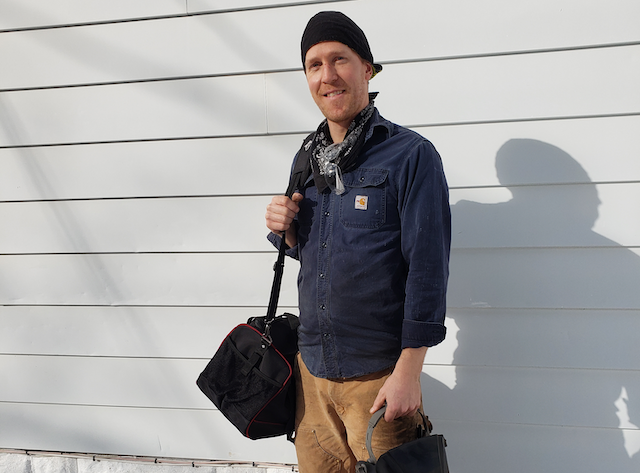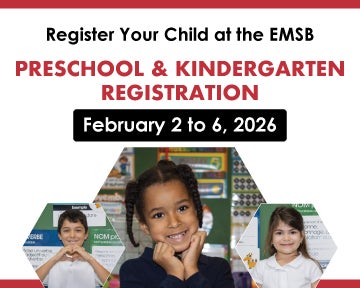EMSB program helps fast-track skilled workers to diploma

The Recognition of Acquired Competencies (RAC) is a small and lesser-known service offered by the English Montreal School Board (EMSB) – but it packs a punch. The option paves the way for someone with existing skills and knowledge to prove their competencies in a certain trade and more quickly earn their vocational training diploma. And, it’s a way for the province to tap into the wealth of skillsets of people newly arrived in Quebec.
There is a growing need for this service now, says Miriam Furfaro, Educational Consultant with the EMSB, who has been heading up and revamping EMSB’s RAC since 2016. Someone who already possesses job skills through years of work and life experience can have these tested through a series of assessments and be provided with official recognition of their competencies. In line with one of the eight programs in EMSB’s Adult Education and Vocational Training sector, it also provides a training plan that helps the candidate develop any skills they lack in order to obtain the Diploma of Vocational Studies – or its French equivalent more commonly used, the DEP (diplôme d'études professionnelles). With the DEP, many can negotiate higher salaries, greater job security and more employment opportunities.
At one time, the focus was on the “Institutional and Home Care Assistance” program, which is preparation for an occupation in patient services or home care in the health and social services sector. Known popularly by its French name, the “préposé aux bénéficiaries (PAB)” program, has, in recent years become very popular. Over 300 people have obtained diplomas through EMSB’s RAC. Most have settled in Canada from other places in the world, learned about the program through word-of-mouth – and now having proved their competencies, are working in short-term facilities, residences and private homes. Many arrive in Canada having worked as qualified nurses in their home country, explained Ms. Furfaro. “They all find jobs,” she said, but she was also eager to describe the seven other programs offered by EMSB.
They include: Accounting, Automobile Mechanics, Hairdressing, Machining Technics, Professional Cooking, Secretarial Studies, and Welding and Fitting. “It’s just a matter of these getting some of the spotlight,” she said.
Who does it benefit?
The program benefits someone who has a passion for cooking, for example, someone who has been developing skills their whole life without any formal training. Or someone working as a mechanic who has come up through the trade by learning for years from a family member. They may be poised to take over the family business but need certain qualifications.
Health care work and secretarial work are areas where many have developed skills over time. Someone can have years of experience by providing nursing assistance to a family member or working at office jobs. But, for employers, a worker often needs to have a diploma. This is where RAC comes in: It recognizes the skills the person has developed themselves over time and helps fill in training gaps to secure the paperwork leading to jobs with security, promotions or benefits.
“It’s really for people who have knowledge. It doesn’t matter how they acquired it,” said Ms. Furfaro.
In 2019, for the first time, the EMSB program provided a competency certificate in welding. Its recipient, Caillan Loiseau, said he was interested in RAC because he wanted his DEP in welding. With several years of experience under his belt, as well as having completed a welding apprenticeship in British Columbia, Mr. Loiseau wanted more work opportunity in Quebec, where he was planning on living. “Between my apprenticeship and work experience, I had already covered most of what the DEP program teaches, so I wasn't interested in taking two years to do the full program. The RAC seemed like the way to go. That way I could continue to work and have my DEP much quicker,” he said.
He liked his instructor, whom he described as “easy to deal with, a fun guy to be around and who definitely knew his stuff!”
Mr. Loiseau was assessed in each competency and was able to obtain his diploma after only a few visits to the school. He proceeded to pursue different job options in Montreal and eventually settled in the Lower St. Lawrence. Already confident in the skills he acquired through his working life, he said the combination of his apprenticeship and the DEP he earned through RAC gave him room to negotiate a higher salary.
The EMSB’s Institutional and Home Care Assistance has been popular in recent years. Thomas Odin M. Sta Ana, a new immigrant to Quebec, said he wasn’t initially able to practice in healthcare in Canada when he first arrived in Quebec despite his degree in nursing from his home country, the Philippines. When he discovered there was a RAC for his area of expertise, he said it gave him an idea about the Canadian healthcare setting. And, it helped him financially and gave him patient care experience in Quebec.
“What I liked the most was the stage because I was able to practice my profession and care for patients. The reason why I took nursing is I love caring!”
Through RAC, Mr. Sta Ana was able to prove his skills were equivalent between his Master’s degree in medicine and surgery nursing from the Philippines and the Canadian Bachelor’s degree in nursing. He worked as a nurse clinician at the Montreal Neurological Institute Hospital and was reassigned to the McGill University Health Centre Glen Site ICU during COVID-19. “I feel great contributing in these unprecedented times,” he said, and called all health care professionals “modern heroes of this world.”
How it works
There are two routes a candidate can take towards earning the diploma: In the first, the teacher evaluates where the candidate stands in each provincially mandated competency or “module.” In cooking, for example, there are 27 modules. The teacher can either send the candidate to the exam right away, bypassing any training, or can recommend the candidate take courses at the vocational centre in order to get the training they are missing to complete the skillset.
Those enrolled in EMSB’s service are called “candidates.” They are not students in the traditional sense, explained Ms. Furfaro. Many of them bypass the training program completely and prove their competencies through the RAC process, which is why they are considered candidates throughout. Some are in the program for just a matter of months. The teachers who do the assessments are people working in the trade itself.
While the global pandemic has stymied the flow of immigrant students into the program, there are candidates waiting for assessments in machining, cooking and hairdressing, Ms. Furfaro explained.
It’s a beneficial program for all sides, she said, pointing to the hundreds of workers who obtained their DEPs through the RAC process to become much-needed Quebec orderlies. “To give them that opportunity to work in their field is really rewarding – for us as a school board and for them so they can do more interesting work than they might otherwise need to do.”
For more information, visit https://emsb-aevs.com/RAC/
Watch the video here. https://vimeo.com/511160993











